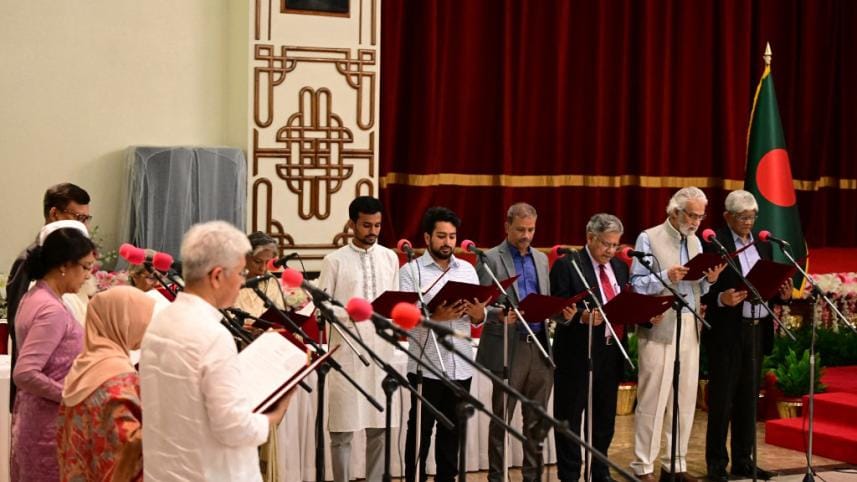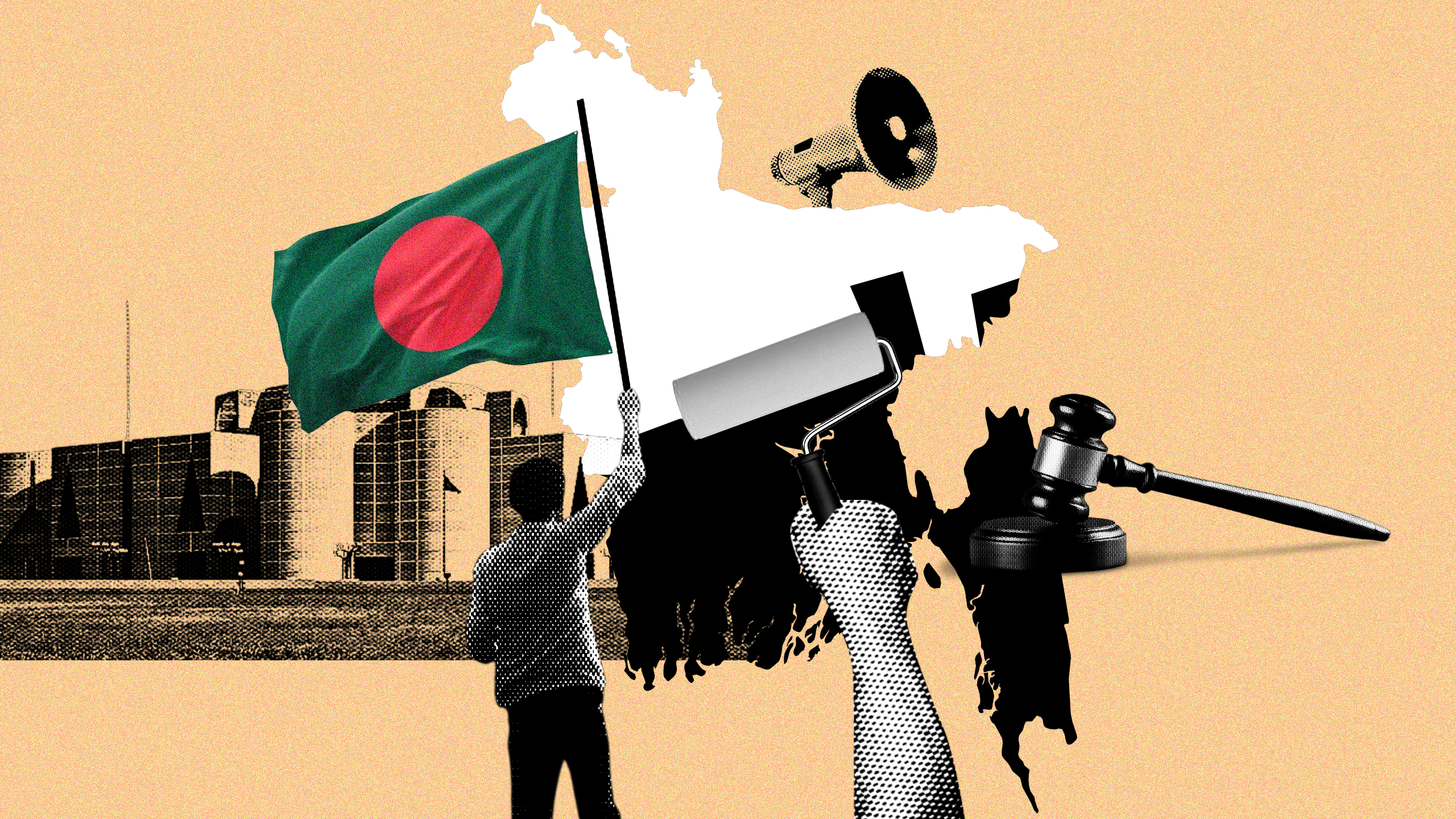True reform starts from within

Crises often present opportunities for deep reflection and lasting change. While discussions about reform are widespread and undoubtedly necessary during this transitional period, we may unintentionally overlook the foundation of all meaningful reforms—placing moral values at the heart of every sphere.
As a key figure in this newly formed government, I urge Dr Muhammad Yunus to consider the following proposals, which focus on the mindset and lifestyles of his advisers, policymakers, administrators, and their families. Previously, we have observed that these VIPs often overlook that home is defined by its people, not just its place. When someone returns home and notices inconsistencies in their family members, it is crucial to address these matters seriously. After all, the stability and well-being of the home deeply influence one's effectiveness in broader responsibilities.
An unchecked lifestyle for status breeds corruption in character. While some of these personal and psychological issues may seem minor during our nation's critical phase, collectively, they are crucial in shaping our leadership's positive psychology and effectiveness from the ground up—just as many pure drops unite to form a clear river. As Dr Yunus once said, "small things make significant changes"—we, too, believe that these are fundamental steps in tackling the challenges we faced yesterday and those that lie ahead. It is a collective responsibility, and we are all part of this shared mission for change.
As within, so without
A proper mindset is the foundation for any external reform to take hold. Unfortunately, we have not adequately nurtured the moral values necessary for building an ideal nation, and our focus has been limited. Despite understanding the importance of education and health care, previous leaders failed to enact positive changes in policymakers' personal attitudes and family lifestyles. The privileged class, in particular, has often neglected the responsibility that comes with privilege—a serious concern that needs to be addressed.
A virtuous cycle exists between work and family life, which can quickly turn vicious if neglected. It is challenging to work effectively and remain inspired without the support of a kind and generous family life at home. This is especially true for top officials, whose workloads are often overwhelming. Failures in managing family dynamics and resistance to changing harmful cultural practices within our households have been among our leaders' and policymakers' most significant shortcomings.
History has shown that many of its most infamous leaders possessed rigid personalities marked by excessive control, a lack of empathy, and an absence of resilience—traits often rooted in their early family environments. Additionally, political and bureaucratic corruption tends to arise when greed and self-interest, influenced by pressure from friends and family members, intersect with public interests.
The reality is that most of our population is being raised with a flawed mentality, lacking generosity and empathy within their homes. Many domestic helpers in this region are still treated like modern-day slaves despite our belief that social justice begins at home. "Early habits die hard"—social monsters and great achievers are cultivated at home. Our nation's future is shaped by how we nurture our family values and conduct our personal lives.
Addressing economic inequality
Bangladesh is among the nations with the most significant wealth disparities, a statistic that reflects poorly on our country. In contrast, more advanced and respected nations have successfully narrowed this gap. Economic inequality remains a pressing challenge, leaving our population dispirited and demoralised. As it is said, when blood flows only to the face and shines brightly, it indicates an unhealthy body—a symptom of something more profound. Similarly, Bangladesh's concentration of wealth and infrastructure in specific parts of the capital, marked by skyscrapers and flyovers, does not reflect healthy economic progress for the nation. Comprehensive reforms are essential in such a country, led by a wise and dedicated team.
The current government advisers and their aids must lead by example, demonstrating their commitment to the nation by forgoing certain luxuries. This could include refraining from using business class on flights or avoiding overseas travel with public money as much as possible. They might take inspiration from Dr Zafrullah Chowdhury, who, despite having the means to seek treatment abroad for his kidney ailments, chose to receive care within Bangladesh and eventually developed a dialysis centre. Such commitment would also address the issue of "medical poverty" and foster greater confidence in our domestic healthcare system.
Many people are compelled to travel abroad for medical care each year, spending at least $3.5 billion—a significant drain on personal and national resources. This is not solely due to insufficient budgets or poor management but also due to a lack of moral commitment to public welfare. To reverse this trend, policymakers must address the shortcomings in our healthcare system and lead by example, actively managing their own health within our medical facilities. Prioritising these reforms will help build a more equitable healthcare system that serves all citizens.
Bridging the gap between the highest and lowest strata of society is crucial, starting with leaders embracing modesty and practicality in their personal lives, including using everyday official vehicles except when hosting foreign dignitaries. This could involve driving smaller vehicles (under 1,500 cc), living in comfortable yet modest homes, and avoiding unnecessary expenditures on grand displays. Official vehicles should feature a red top and green body, replacing the traditional black, symbolising elegance, wealth, and power.
The number of personal aides and other unnecessary comforts should also be reduced, including minimising personal expenses, even for events such as their children's weddings. While these changes may sound unusual, they would set a strong example for present and future governments. These are just a few steps toward the simplicity our leaders must champion in a vulnerable nation at this critical juncture. People will quickly recognise that reforms have begun with small steps in a journey of a thousand miles.
Implementation
To make these proposals more actionable, I request the creation of a "Moralogy Cell" to implement and promote moral values such as compassion, generosity, and resilience. This cell would focus on cultivating well-being through a culture of kindness, from primary schools and madrasas to higher educational institutions and all religious places. In fact, "Moralogy" is a Japanese concept successfully established 100 years ago at a leading university near Tokyo. The cell will focus on mindset transformation, as the right mindset is essential for fostering an unstoppable drive and cultivating a positive attitude.
Dr Yunus leads the country at a time when many have drifted away from moral values. Public celebrations of beating or hanging are not uncommon, and kindness is often mistaken for weakness. Society has become mired in nitpicking and gaslighting. In these turbulent times, most of his team members—part of the Baby Boomer or Generation X cohort, raised in a rat race and finding self-worth in their jobs—are now tasked with leading Generation Z, which makes up almost one-third of our population. This generational contrast offers a unique perspective as Gen Z embraces change for a better, more humanitarian world that is generous toward both people and nature.
It is encouraging that this tech-savvy generation, having recently endured the Covid-19 pandemic and navigated many facets of democracy, has begun to understand the importance of compassion, becoming more resilient and empathetic. This is a rare opportunity for Dr Yunus to shape history and be remembered alongside great leaders like Nelson Mandela. We wish him every success in this critical and challenging endeavour.
Dr Rubaiul Murshed is a healthcare management expert and founder of Shomman Foundation
Views expressed in this article are the author's own.
Follow The Daily Star Opinion on Facebook for the latest opinions, commentaries and analyses by experts and professionals. To contribute your article or letter to The Daily Star Opinion, see our guidelines for submission.

 For all latest news, follow The Daily Star's Google News channel.
For all latest news, follow The Daily Star's Google News channel. 



Comments